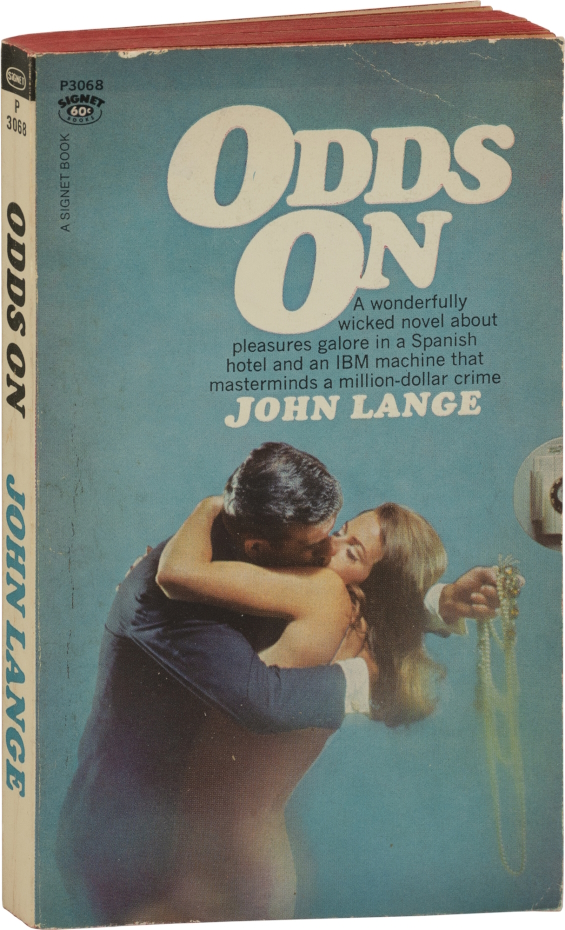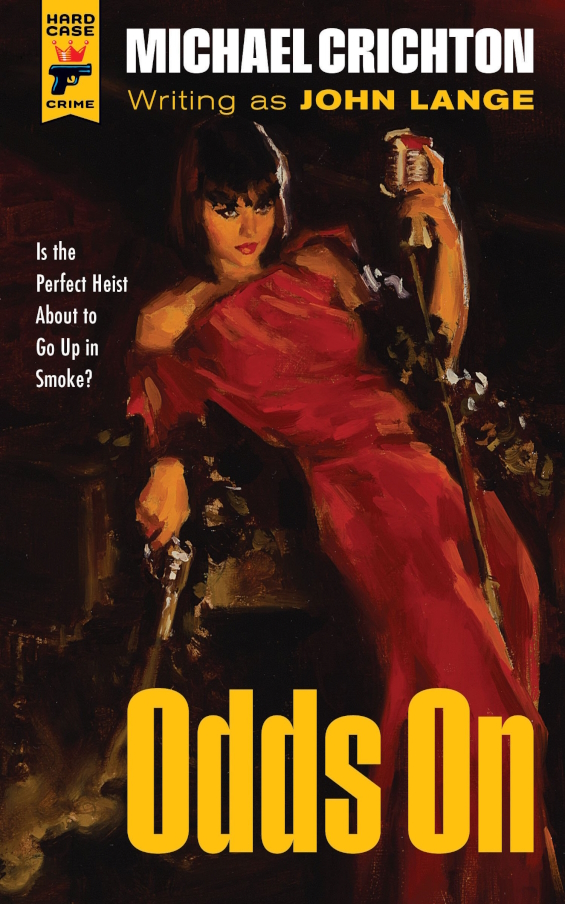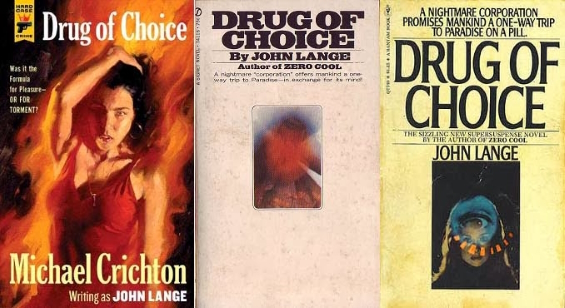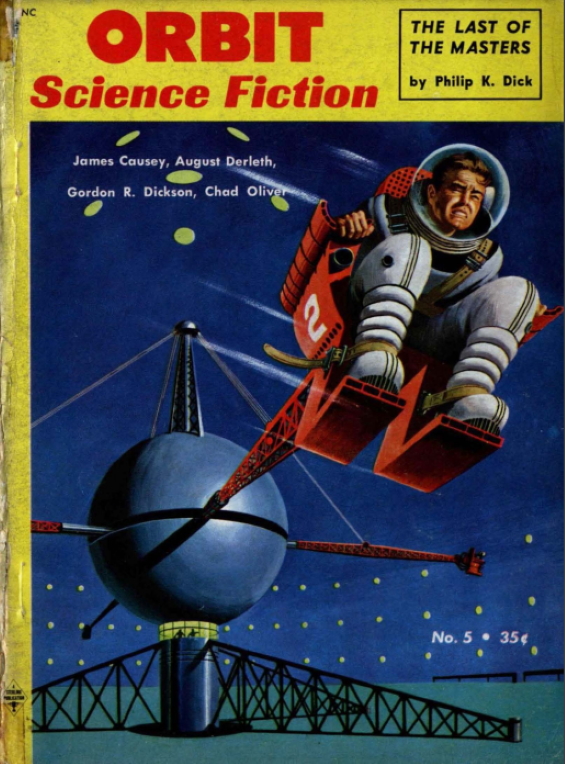The SFFaudio Podcast #778 – Jesse, Paul Weimer, Scott Danielson, Trish E. Matson, Will Emmons, and Jonathan Weichsel talk about Houston, Houston, Do You Read? by James Tiptree, Jr.
Talked about on today’s show:
a collection of feminist science fiction, 1976, Vonda McIntyre, Racoona Sheldon, what dynamite on my bookshelf, me, and yet you showed up, cardboard box with sawdust at the bottom, The Screwfly Solution, she has a hobby horse, a point of view, Robert A. Heinlein, what people on twitter were saying about this book, interested in what the text says, the audio drama, the acting, the choices that the editor made, the ending, the central metaphor, it’s a pun, girls don’t read, classic history, a lot of sparks, pretty good, time jumps and transitions, what the hell’s going on, in chronological order, the novella jumps around a bit, the audiobook narrator, not great job, textually complex, she wasn’t terrible, all those voices, the Connies and the Judies, Australia, the Canadianism, the one word: aboot, northern Canada, northern Alberta, any kids?, no evidence for that, still under copyright, good prominence, more actively marketed, we are digging this stuff, we readers, we heard good things about this author, Hollywood is making so much Philip K. Dick, the estate is trying to sell that stuff, the Edgar Rice Burroughs estate, not being exploited, getting books into hands of people, Her Smoke Rose Up Forever, especially Andy, a tremendously translated narrator, Oliver Wyman, a vocal chameleon, Katey Sagal would be ideal, a spark of comedicness, a very serious story, a little too serious, I’m holding a skull while reading a book, wry humour, not brought out by the narration, super-subversive, the men were just being drugged and put back to sleep again, being put down like dogs, the “good one”, he has no brain for him, why he drinks the hemlock, Socrates ending, sweet smiles, he’s drinking it willingly, the circumstances are such, antidote for the drug, it makes a choice, he’s saying that unknowingly, pretty horrible, tastes cool going down, peace and freedom or death, so horrible, everybody is making their own decisions, hive mind, girls talk it out, it’s a pirate ship, Jesse, is this anarchism?, the answer is: maybe, approval from them, on a pirate ship, orders when in battle, the platonic ideal, Blackbeard, the golden of piracy, mutineers and slaves, the consequences for breaking one of the articles, quartermaster, share you out, this is not a pirate ship, an anarchist society, how your house works, the husband is the captain and the wife is the first mate, a horrible household, patriarchal households in the US and Canada, religious ones, a lot to say about religion, not organized like a captain, corporations, a lineal structure, flatten the structure, a company vs. a corporation, we never go to Earth, three drunk guys, the entirety of the story, did she have a POV, what people said about this, psychopaths, I’m so glad you are not my boss, this is horrible, quotes, back up your evidence, while Jesse does a search, Ursula K. Le Guin’s The Dispossessed, The Tyranny of Structurelessness, observations of various feminist groups, the loudest voices dominate, nebulous, a more ruthless power, a world being inherited by woman, this is not facts, migrant, reproduced by cloning, rich white women like herself, Alice B. Sheldon, your faces oh my sister, from the male perspective, a culture of women who no longer have that problem, David Santa something, irradiated itself, quite the read, SinclairJM1987, if all men die, we are already capable of impregnating ova with another ova, in the 1970s, all the human males died, you girl girl!, holy shit!, women studies department, discussions of the books we’re reading, we think cloning is bad, Hitler’s army of clone Hitlers, making millions susceptible to disease, 11,000 different clones, 4 lines, this is a problem, so provocative in this book, the way some people think about Heinlein, good for me, dangerous for you, second wave feminism, Herland, The Yellow Wallpaper, Will should love this, three men get in a balloon, a retelling of The Lost World, a lost plateau covered in women, three American men show up, let’s party, active rape scenes, the sequel book, entirely Amazonian society, women do men’s jobs, so hard, to the nth degree, this is nightmare world, mom killing you, this guy’s a fuckin monster, protecting women from other men, giving no fucks, there are good men, in vino veritas, Thomas Ligotti, Wayne June, that sounds interesting, even harder than The Screwfly Solution, the hard feminism of Tiptree, uncompromising, ruthlessness of a pleasant smile and a faraway look, this is for your own good, sperm samples, Ethan Of Athos by Lois McMaster Bujold, get some eggies, artificial wombs, needing genetic diversity, why did she put it into space, just for the joke?, the pun?, money, farmers, everybody takes turns, four industries, activities, the loom, there for fun, Venus is boring, two million people, interest and work, a very ambitious book, cut down, too much at the beginning, the meat of the middle, the jokes, bad take about H.G. Wells not needing to be read anymore, oh my god, no idea, right away, told by the narration, Andy, androgen, funny jokes, what was the name of the chess move?, Dagmar’s gambit, a real person, a celebrity, mononamed celebrity, like Madonna, Prince, singer, comedienne, actress, stunning physique, dynamic personality, towers over Frank Sinatra, plays dumb but is smart, Judy, the Australian, American and British actor, Cary Grant, Archibald Leach, tripped out on drugs, shoved into the girl’s shower, dick in his hand, such a girl, sympathetic to the women, stereotypes about men, why she’s so dangerous, we don’t need men, set the deck, frustrated with the story, not kind to the women, she’s mean, some ideal utopia, no!, Heinlein’s worlds as utopia, The Boys, Homelander is a hero, she’s suicidal from the beginning, hates the structures, wants change, she wants to smarsh the patriarchy, making a statement, not going to be the ultimate solution, women as cold, things of interest, it’s kind, it’s not like they tortured dogs, a laboratory experiment, almost clinical, rape scene, how are you feeling, deliberately off-putting, she’s making a statement about women, shame and humiliation, power, like a scientist, nobody has had sex in 300 years, is he going to emit sperm now?, emasculating the rape, not about power and violence, how interesting, the male perspective is embodied by these three guys, canny, too much of, Lorimer, most sympathetic, he gives in, impenetrable, need to drink this hemlock, can’t we all get along, written omnisciently, playing a character, hypermasculine stories, unable to write, edited by Vonda N. McIntyre, David G. Hartwell, when her name was found out, her spigot dribbled out, Racoona Sheldon is a new hidden identity, no big gap, gets something wrong, introduction is so interesting, on Archive.org, on page vi of the introduction, The Cold Equations by Tom Godwin, who is sacrificing whom, and return to his own time, the world of the future, his name is on a plaque, we did not mention our epidemic, editorial take, Lorimer doesn’t die in the end, causes the deaths at the beginning, utter buchwa, women on the ship, “our epidemic”, the context, 6-65, as to your first point, space cadre, 0.0, notice the tense, the men’s polio shots, killed virus, childhood diseases, he does not mention their epidemic, x-chromosoming epidemic, they’re gonna die, let this sit for a minute, Y: The Last Man, the premise, one dude and his male monkey, three astronauts, it’s a tour of earth, visiting a whole bunch of women, who’s gonna do this, he’s not really important, he’s a juggler, society continuing on, a much softer take, more ruthless, the simplicity of The Cold Equations, a birth defect, infanticide, suckle, stroke, clean, bury after you strangle, the horror of this story, mischaracterizing Jesse, such a mean lady, we all have aggressive fantasies, pop into your head, society tells you a lot of stuff, finding your identity, this language thing, this history thing, notes of their lives, she’s revolutionizing so many things, couple of hours, she’s brilliant, one image, crucific in one hand gun in the other, volume of information in one image, Zardoz (1974), the gun is good the penis is evil, symbolic heavy, negative female stereotypes, chatty Cathys, if you read this as a woman, that’s so wrong, women don’t innovate, tweaks, legit stereotypes, she doesn’t only do stereotypes, smorgasbord, a buffet, a time travel book, women kill all the men, a female utopia, men need to hurry up and die, who are the sympathetic females, sympathetic, very interesting too, when he’s all excited, I felt like hitting somebody, we need to make one strong for those manual tasks, open this pickle jar, extra hormones, anywhere near queerness, if somebody wrote this today, of course I love my sisters, unrealistic, how much Connies and Ingrids, this is not a sex bus, lose a lot of context, the sex act is consequential for a lot of people, can result in babies, a lot more casual, changes the focus, that’s how the one guy, put up a statue to my penis, they dose them, the truth drug, lack of inhibitions, let’s find out the truth of these men, shade the truth, omit things, unskilled liars, change slightly, the central joke, we do for a fact, our so called great books, who do you read, there’s our future Surak, Shakespeare, not very realistic, talking to other women about books, being frustrated by that, this is not all women, terrible episode of The Twilight Zone episode Not All Men, the consequences of this, let’s take this story and say it is not a cartoon, not a dystopia, humanity has lost its soul, half-species, half broken, trying to keep the language the same, the sick part, where the men won’t understand the women, if you’re not going to write books anymore, real trouble, studying history a lot, not realistic, outside of their experience, Andys perform the roles of males on stage, all set in space, an interesting stage play, when the rape scene starts, hard to watch, we don’t get a travelogue, soulless broken, a knife edge, it could fall one way or fall the other way, nobody is right in here, really mean, very cool, everybody sucks here, Am I The Asshole (a reddit forum), is this really a normal thing, a family of violent alcoholic, hard-ass, is Jesse gonna feel oppressed, smothering, if she was dumber and tried to do this, smart, wise, typical man, they need a gun, kind of American, if written by a non-American, the captain is religious, is that allowed by NASA, he’s number 2 on the ship, Buzz Aldrin, fumbled words from Armstrong, magnificent desolation, prescripted by a committee, a lunar base, that’s not our world, in 2023, circumsolar expeditions, page 14, he often says that too, the sparkle of Spica, like a blonde fu manchu, what’s his plan, evil world domination, those orientals with their devious ancient knowledge, reverse colonialism, planting the seeds for what she’s trying to say, hard to take a good take, what’s the good take, the evil Kirk separated from the good kirk, Scott’s wisdom, the good Kirk can’t make decisions, they’re gonna be suckin my cock all day, that episode is so strong, one Kirk running around the ship raping women, Yoeman Rand, that wasn’t like me, that’s not how women would run things, some women are really fuckin bossy, Margaret Thatcher was a woman, evil lady, city garden societies, more vicious that men, Mayor Daley, that’s the theory, Jesse doesn’t buy it, personal experience, a head nun, the abbess, fraternal brothers order with different characteristics, a benedictine nunnery, who’s most experienced at this particular thing, deferring too much, everyone in this podcast today, Will, Scott, Trish, Jonathan, don’t forget Paul, we’re on a boat in the middle of the ocean, solution solved, Heinlein, anybody been on a boat before?, Jesse has been on a lot boats, who knows how to swim, how to solve this problem, seniority is the traditional way, these are the elders, they have seen many summers, many winters, society, we’ll have a meritocracy, what have they developed, fertilizing ova, some innovations, only 2 million people, all we see is the ladies on the ship, what they tell us, a 17 book series, so much idea to be mined, very easily could have been a novel, keep it small, to the idea, very very good science fiction, it doesn’t even need to be set in a spaceship, the pun first, what’s the difference between men and women, Jesse is reading too much into the play on words, it’s not the focus of the story, having the word read in there, difficulty reading, partially occluded, a very fun metaphor for what she’s doing, we’re partially blinded, Earth should be here, October not April, a tiny little package, it couldn’t be any shorter, 1972, When It Changed by Joanna Russ, a planet settled 30 generations ago, a plague wiped out all of the men, whether the women want it or not, dueling scars, killed three women in duels, dueling scars, German empire, Nazism is a distraction, ova fusion, mainly agricultural society, a couple more generations, overwhelm us, a contrast to Tiptree, violence certainly still exists in this female society, a mayor, other political currents, a different view of an all female society, just one point of view, play on gender in the 1970s, The Left Hand Of Darkness, very New Wavy, Again, Dangerous Visions, a biography out there, 1976, one preceded the other, a male activity of practicing violence, no violence from the women in this book, very soft/passive, not demonstrative violence, men went after getting these scars, dueling class, guards all over their body, fencing, to prevent eye damage, you give the guy a scar, they don’t want to lose an eye, it works either way, put on your armour, if you don’t have one, people would cut their faces, the Nazi ideology, showing their masculinist, a John Sanford book, scatheless, glass fragments to show the boys back home, cutting women in the face, a man with a cut on his face is more male, heightens his desirability, Otto Skorzeny, cheek with the duelling smites, being tall, women are acting like men in that situation, men and women are different, we have more range than that, a lady who’s proud of their dueling scars, Paul can imagine a society where women are in charge, the hot thing, the one episode of Star Trek The Next Generation, where men are tiny and women are amazons, the very male of the audience of the show, lot of heterosexual women liked that, Jesse is not a heterosexual woman, ideas by the footload, it hurts, more other works, Seven Eves by Neal Stephenson, doorstopper, cloning and other techniques, the definite this, the definite that, yet to be , Brave New World is not a cloning book, eugenics, 888 page, is it a definitive cloning book?, quasi-sub-species of humans, traits and subtraits, chemist, farmer, biology is not destiny, way to long, if you like that sort of thing it’s your thing, Jurassic Park is a cloning novel, the scientist in the book, sinister in the book, genial in the movie, sparknotes, analysts say, Cyteen, your definitive clone novel, a masterpiece, the most ambitious sci-fi novel, what makes it so good?, Will’s just a young buck, the concepts of nature and nurture, the basic plot of the novel, multi-generational cloning project, get this brilliant chemist to come back, stuff in the background, free labour, citizens, clone brothers trapped on this compound, attracting all this attention, wheels within wheels, a lot of crunchy intrigue and shenanigans, a secret colony, the whole Cyteen world, cloning and tape learning, the old fashioned way, two ideas of feminist theory that are different, become leaders in those institutions, the women should leave and start their own institutions, radical feminist, maybe that would be horrible, right up to the end of this book, I don’t want to hate her, women are capable of a lot, a contribution to society if given equal rights, wait sixty years, what would happen if women had a society without men, this is horrible, twitter takes, maybe we just need to give them more books to read, getting focused on one part, an idea that a lot of people have, the author is advocating, his vision of the future, the characterization that comes in the movie, smiling handsome children, Doogie Howser comes on with a Nazi uniform, rooting for these Nazis, sometimes Heinlein is bad at his strawmanning, humanity has been strawmanned, reading Starship Troopers as fascism, putting murder in their book, deliberate misunderstanding, a deliberate missing of things, a sophisticated story, Lord Of The Flies, foisted upon children at school, find out what this means, the answers are made up, this is human society?, no girls on the island, hey high school kids, I need to tell somebody about this book, it’s gonna hurt, too strong, it isn’t that subtle, the material is smarter than the scholastic material, always, skipping all the inconvenient because parents would be upset, with a particular ideology, from a fundamentalist perspective, don’t give women any power ever, Scott is that in the Bible?, man is the head of woman, women should submit to men, is he right about that?, should men submit to women?, David G. Hartwell, the way the old human race used to run, bisexual, maybe it’s not as horrible as we think?, trust their words, returning to Earth, pitch pumping, Return From The Stars by Stanisław Lem, different solutions, an interesting parallel case, integrate back, the lost astronaut problem, a Planet Of The Apes story, kind of an asshole, fucking monkeys, kissing one at the end, 247 pages, Will could read that, 1966, a long tradition, deep freeze, coming back from star missions, disruptions to society, in January of 2024, Jesse likes short stories, Sword Of Welleran, Radium Pool, short stories pack a punch, sometimes there’s nothing to say, The Cave Girl, ad 250, in the Koran, 300 years later, no technology has changed, your king is the same name?, a role playing game, we haven’t stumbled over a railroad yet, back in time, a cutoff for the sewers, Romans had sewers, centralized heating, when some piece of tech began, differences between the various steam engines are very subtle, China before Europe, smartphones existed before the iPhone, old social media sites, an unrelated question, start a company called twitter, if you don’t use it you lose it, this tweet doesn’t exist, tweets don’t exist anymore, Skippy Peanut Butter, old Marvel or DC comics that come back, an Unknown Soldier, Obama is giving Batman a congressional medal of honor, if they don’t do it, Superman movies, Captain America with a van, Fantastic Four, serving a particular point of law, it’s not going to work Jesse, laying fallow, Weird Tales is technically still around, they’re separated by incontinuity, all the old titles with any sort of cachet, this is that old thing you like, Babel by R.F. Kuang, what makes a Scott book?, coming into Scott’s orbit, experience it for yourself, did not make the Hugo list, capital R reason, the locus award, fantasy Japanese invasion of China, not a Jesse book, T. Kingfisher, extremely, very charismatic, not a Jesse author, character focused, Jesse hates characters, historical fantasy battles, Evan might like this book, The Oxford Translator’s Revelation, what Evan likes, non-Americans, set in Oxford, Jonathan likes provocative stuff, What?!, oh good, starting to get a sense of Westerns vs. science fiction, hard to get a read on, they like books you would get at the library, the Dragon Awards, less radical, certain subset of fandom, still trying, decrying, this is terrible, own set of blogs, leftists ruining science fiction, evidence, proof, slide into the dms, Wells is archaic at this point, socialism was just a theory, are they trying to look for a fight?, Wombat Soco, a Morlock P. thread, the same mindset, we didn’t know back then, same idea, the strength of Wells is how he presents his ideas, he never says that, communism, socialism, they’re synonyms, a weird and dumb thing to say, even the Our Opinions Are Correct, just a troll of Jesse, okay whatever, don’t read Wells, Wells was passe, they think that, maybe they haven’t read, a chicken or egg thing, otherwise your missing good stuff, fish for squid, hallucinations, fermented kimchi, Heinlein promoted long pig, if there’s a restaurant and it is humanely prepared, thank you Trish, we had a delicious conversation, not even a cannibal, cannibal curious, cannibal flag, we all had mother’s milk, it’s attractive, overstating the case, no cannibal restaurants, lab grown human meat, on a farm for a week, a mink had gotten into one of the chicken houses, summarily executed, deboning two chickens, homegrown rooster, the differences are massive, radically different creatures, very different meats, bones and skin, chicken breeding, 22 rifle, firearms acquisitions certificate, nobody kept the fur, mink in the trap, not of the execution, Evan quit harder, facebook, dms to people, like their comics, what’s life like outside of twitter?, free and easy, focus on particular thoughts, wind in your hair, dog at your side, a playtex commercial, The Mysterious Stranger, more Twain, the Library America, Twain recently, that’s the problem, more definitive than others, the audiobook really shapes it, Francis Stevens, Behind The Curtain, The Elf Trap, we’re booking way into the future, strong ideas, fantasy, the Amber series, very absorbing, tripped out stuff, Robert E. Howard, Conan, doing philosophy, they don’t believe in god, like Triumph Of The Will, a canny hobby horse, gothic novels, hah, defeated it, he’s know for this characters, that’s really cool, Conan is basically the anti-christ (but not in a negative anti-Christ way), he doesn’t die, Trump: I likes sons of god who don’t die, the Christ story is really cool, it relies on love, lust and vigour and love of adventure and love of living, almost falls in love with Belit, he has his good cry, he’s fine with it, comes back with the dead, thank you very much, in the year 6000, reconstructing Jonathan’s personality with AI, what a reviewer wrote about it, that meant that I was in charge, Vomit on the moon book, another leap for human kind, first openly transgenderwoman on the moon, the irony, a lack of progress, satirist, people don’t know what satire is, Adam Chronos, the strong beautiful, black transgender woman in space, who the hell wrote this?, both sides, strength and beauty, what on god’s earth is this crap, missing the irony in the text, a hot topic, in 1000 years, distance, people forget, its much easier to see after a little bit of time, reading Jonathan Swift, the big enders and the little enders, a religious dispute, thou shalt crack the egg, some religious fight, the annotations, Jesse doesn’t trust annotations, the original publications, people’s bad ideas, the guy in the big red shirt wants to murder Jesse, he’s a communist or whatever, even Penguin books?, do tons of research, Schmoop, Trish, Sparknotes, where’s the quote, not quotations, Bokanovsky’s process, just look at the text, that’s illegal, that’s what the news is for, following a lot of libs, a hatelist on Biden, the argument wasn’t about the things that were posted, if it’s true I don’t care, always look at the original sources if possible, clon is not in it, google ngram, clone is a very old world, 1867, it’s happening in the 1940s, copy down what chat GPT says, cloning humans, the mammals don’t survive, a barrier to continuing, not a real viable solution, she’s clever, no, Jesse’s right, Scientific American, Popular Science, this is very interesting, Dolly the sheep stuff, most people don’t read a lot of science fiction, she’s very good at it, The Game Of X by Robert Sheckley, Strange Exodous is Abernathy, also an Italian movie, Seventh Victim, sign up for this game, hunted or hunter, the sevens club, bullet proof jackets, a girl who is suicidal, you don’t have to keep playing, if you’re in the game it’s fine, The 10th Victim (La decima vittima) (1965), The Monsters, Galaxy, H.L. Gold, blow will’s socks off, the newest thing that has happened for some time, where the new thing was happening, a substance resembling fire, on his thick tail, the fifth day of lugat, I have to go home and kill my wife, I’d hate to be late, Mindswap, so many good books to read, wait 10-15 years, the whole series thing, a sequel, everything has to be a series is deadening, counterexamples, The Stainless Steel rat series, Harry Harrison, they’re funny, very enjoyable, making exceptions, the first 3 Dragonlance books, too many, The Weirwoods, gets bad in the middle, good again at the end, plot holes, each one grates on you, a real dip in quality towards the middle, thank you so much.
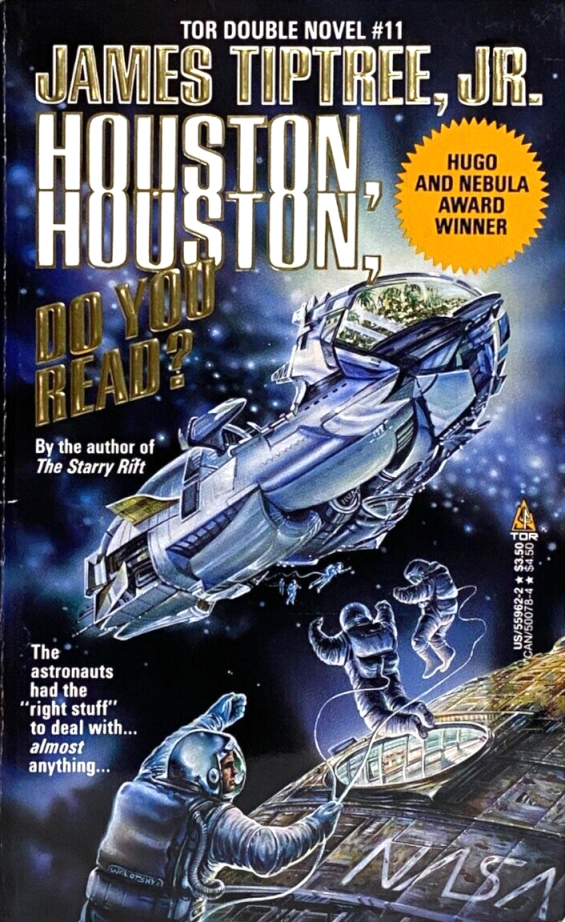
Posted by Jesse WillisBecome a Patron!
 The SFFaudio Podcast #757 – Jesse, Paul Weimer, and Cora Buhlert talk about Odds On by Michael Crichton
The SFFaudio Podcast #757 – Jesse, Paul Weimer, and Cora Buhlert talk about Odds On by Michael Crichton